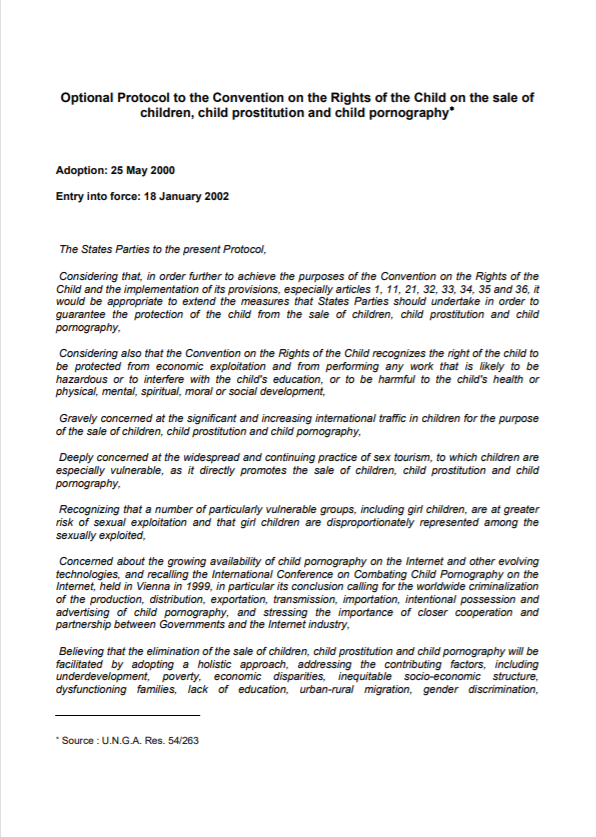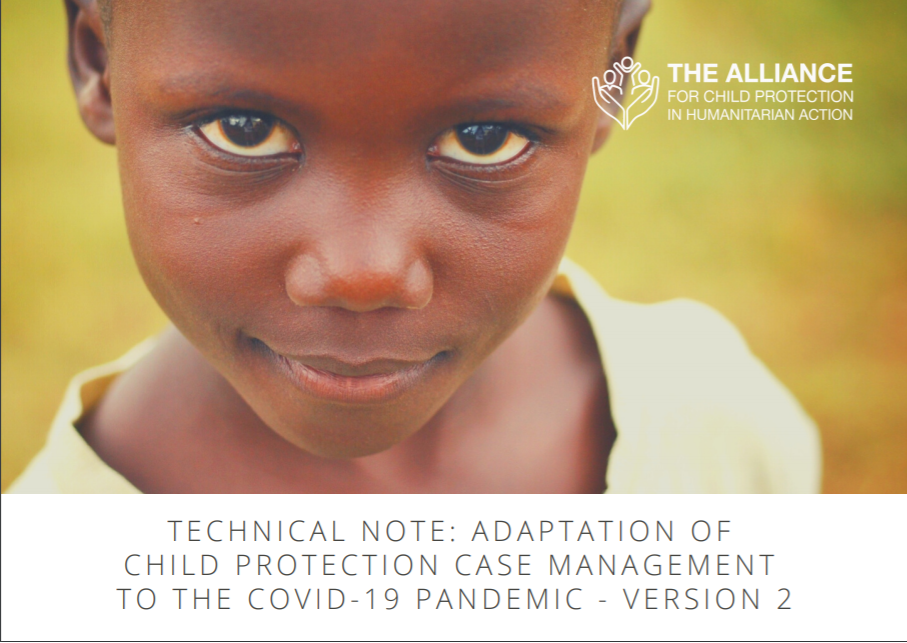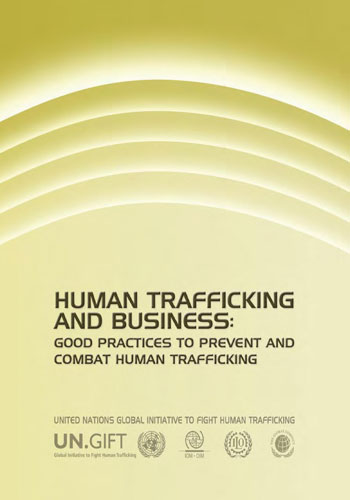Optional Protocol to the Convention on the Rights of the Child on the Sale of Children, Child Prostitution and Child Pornography

Country
Worldwide
Region
Worldwide
Year
2000
Category








